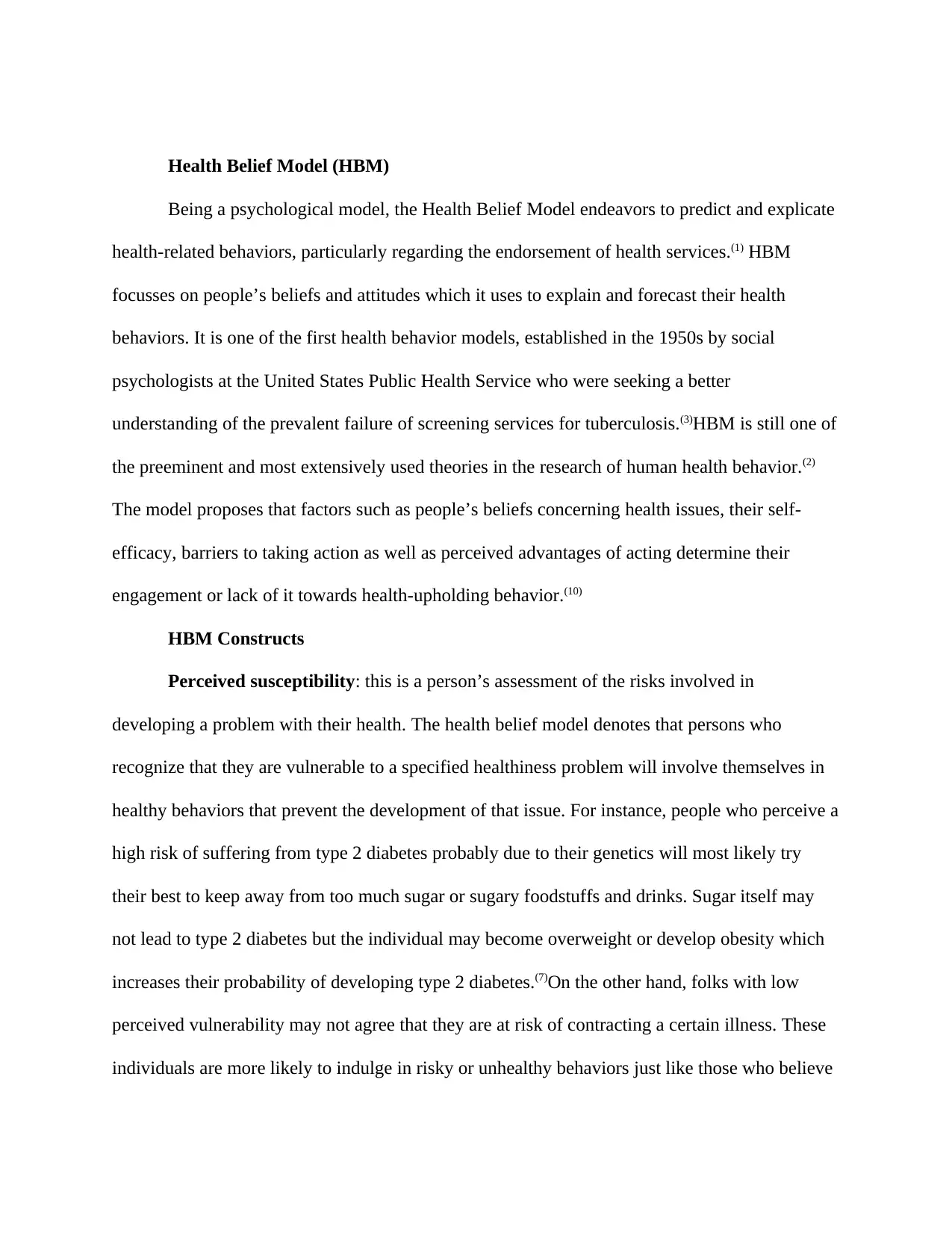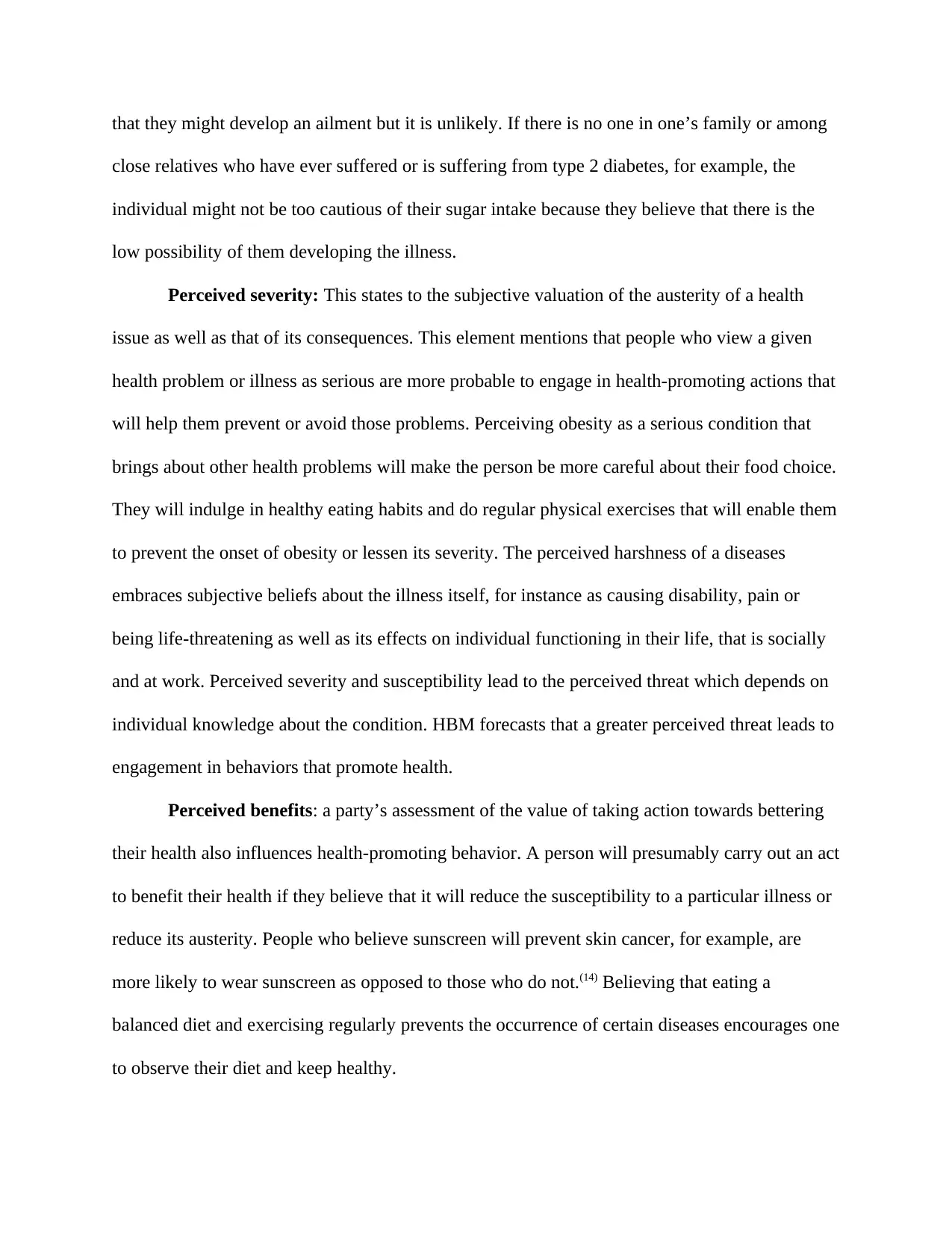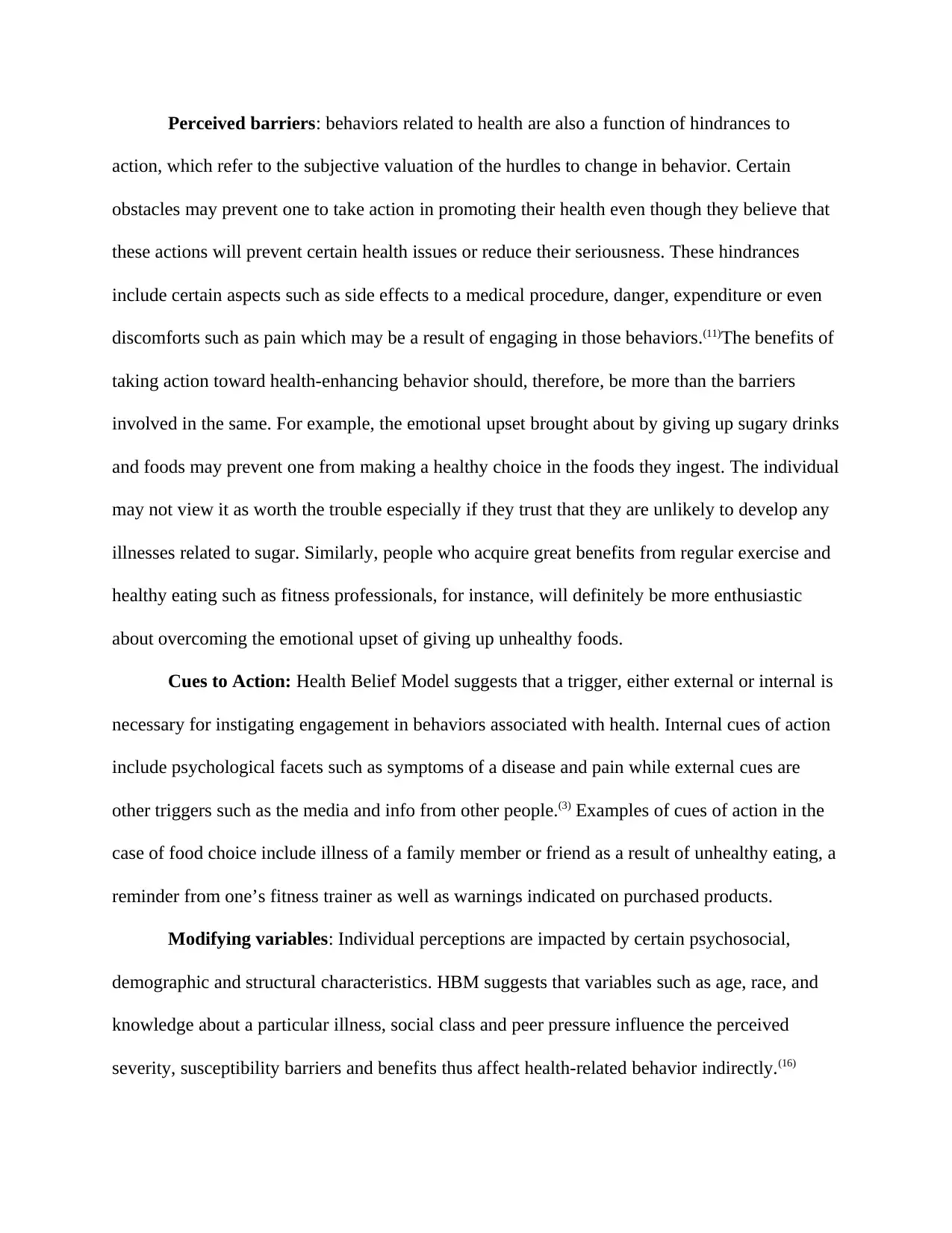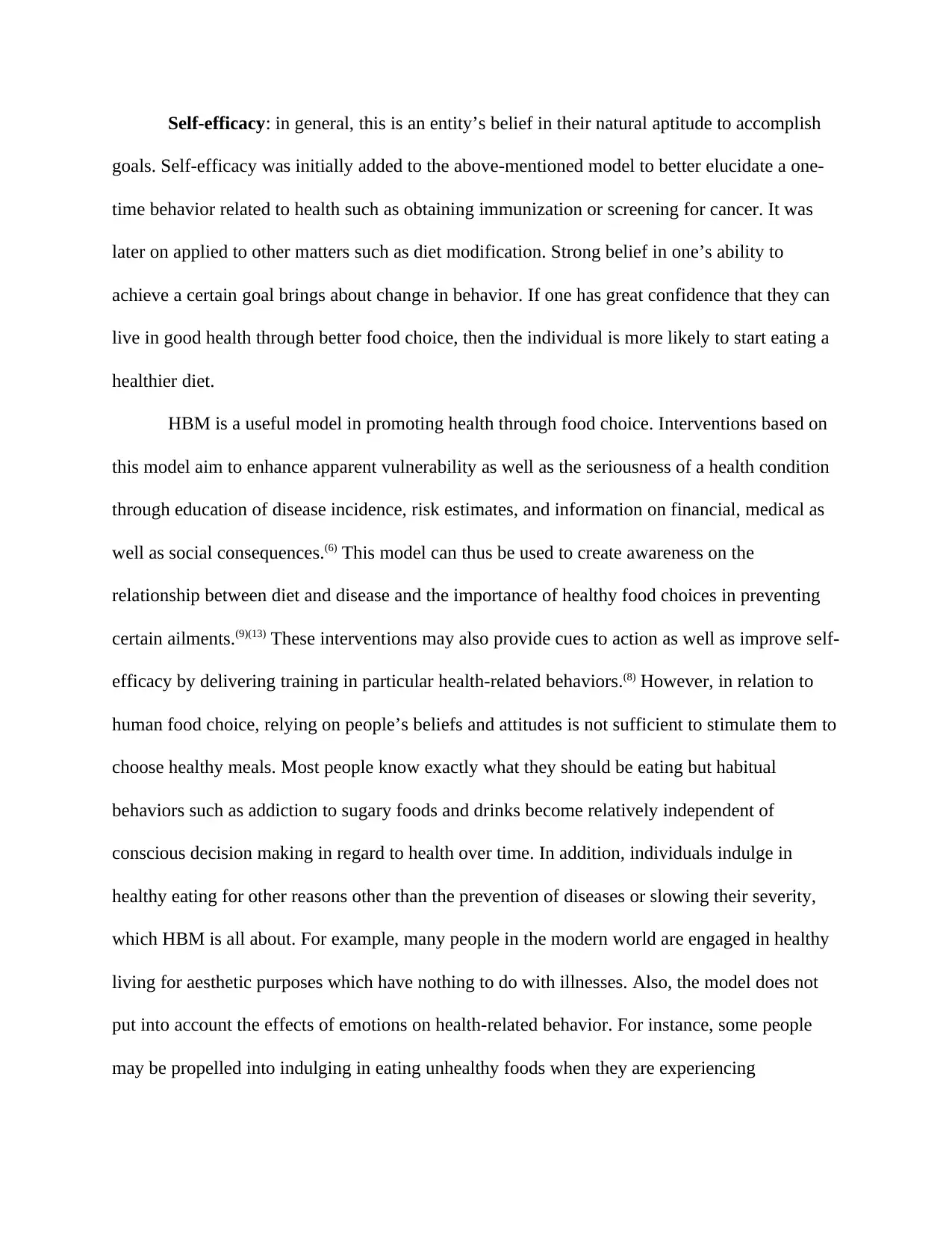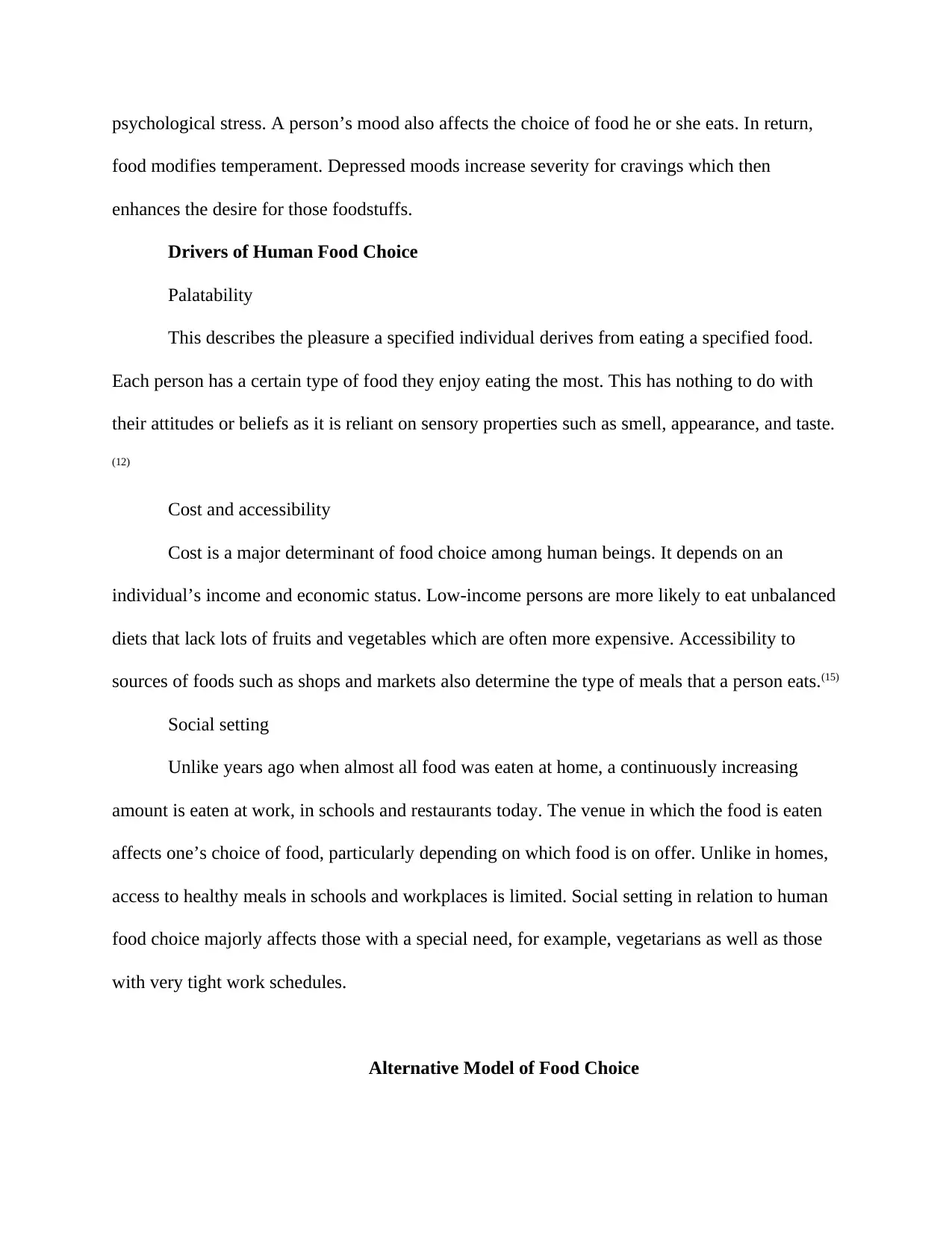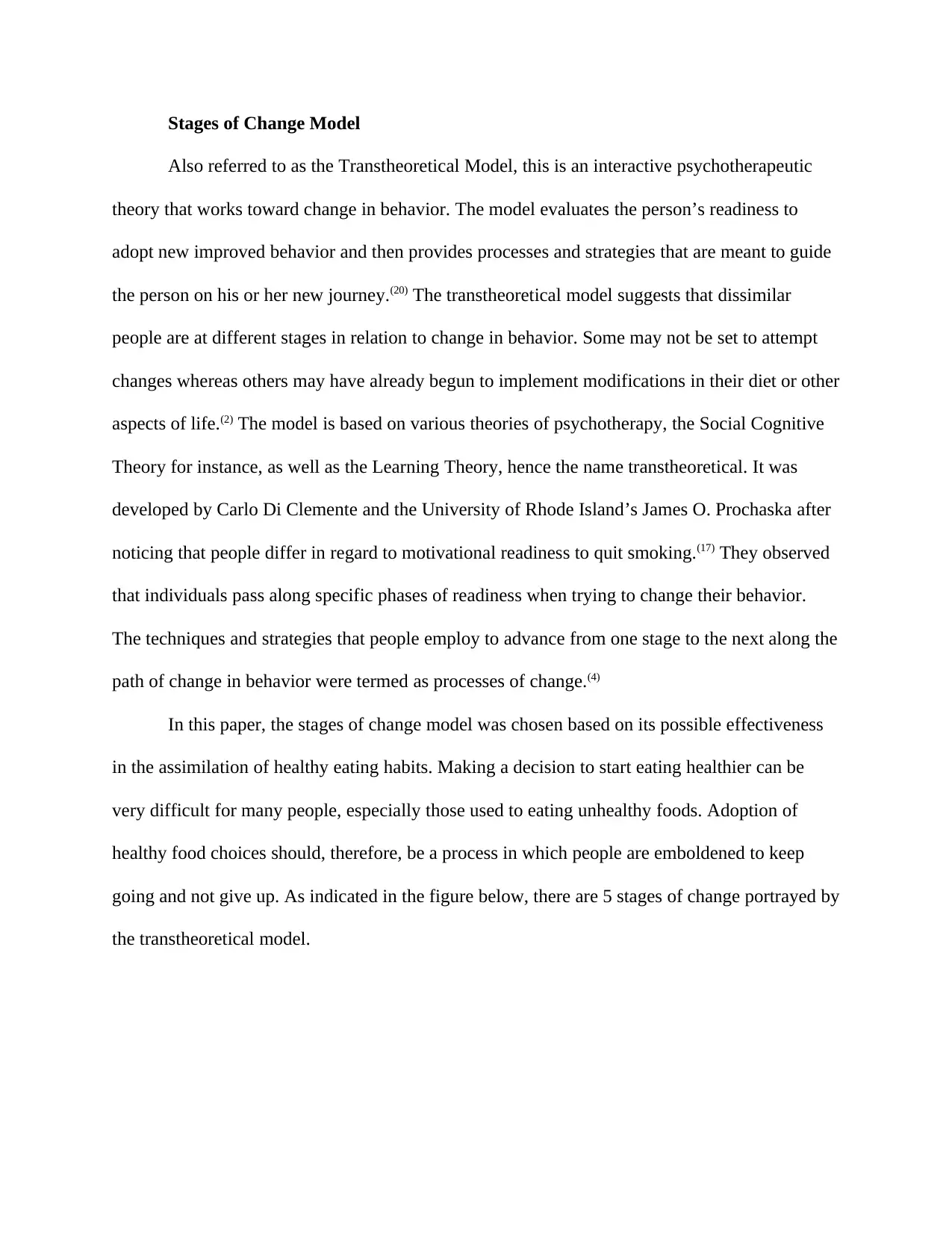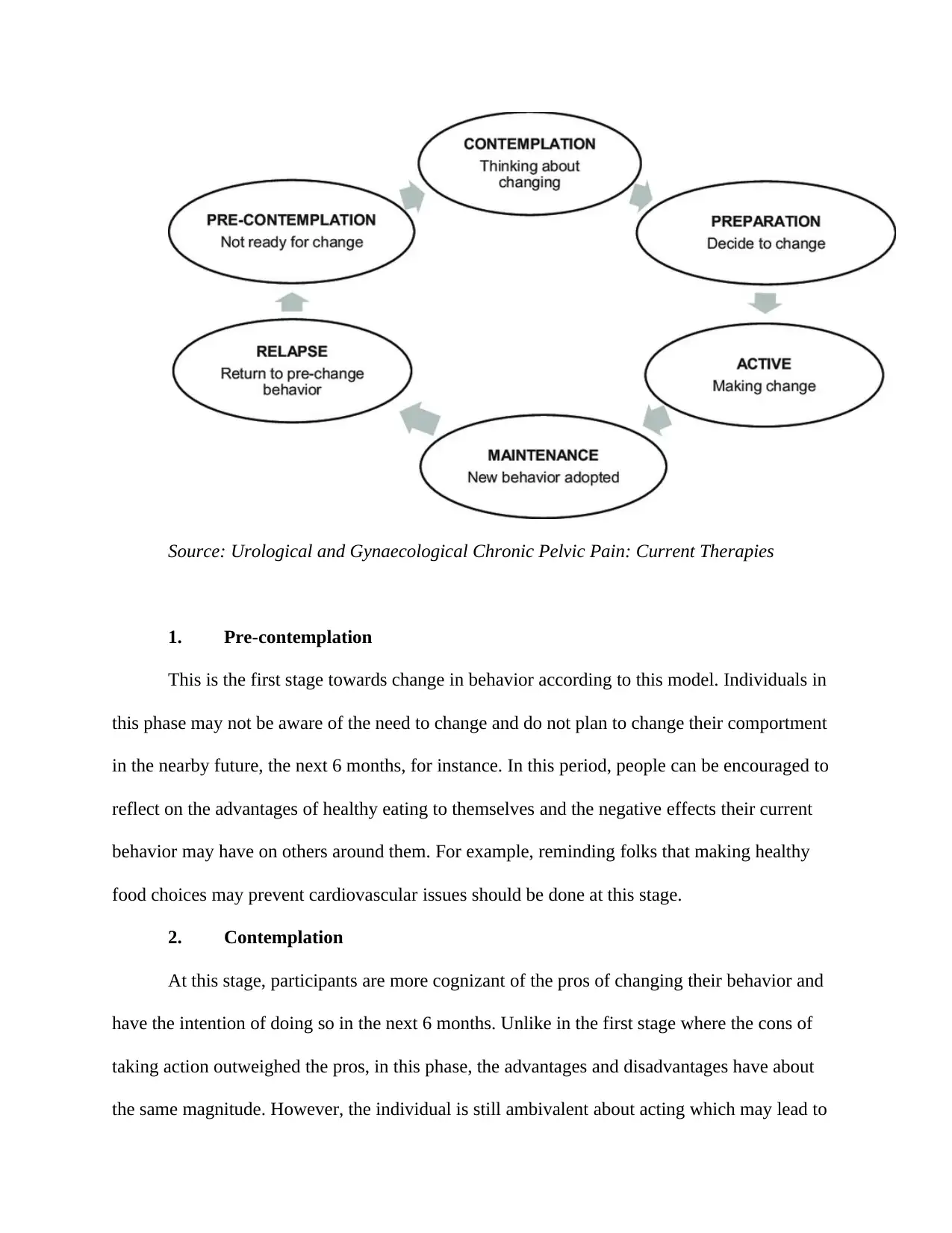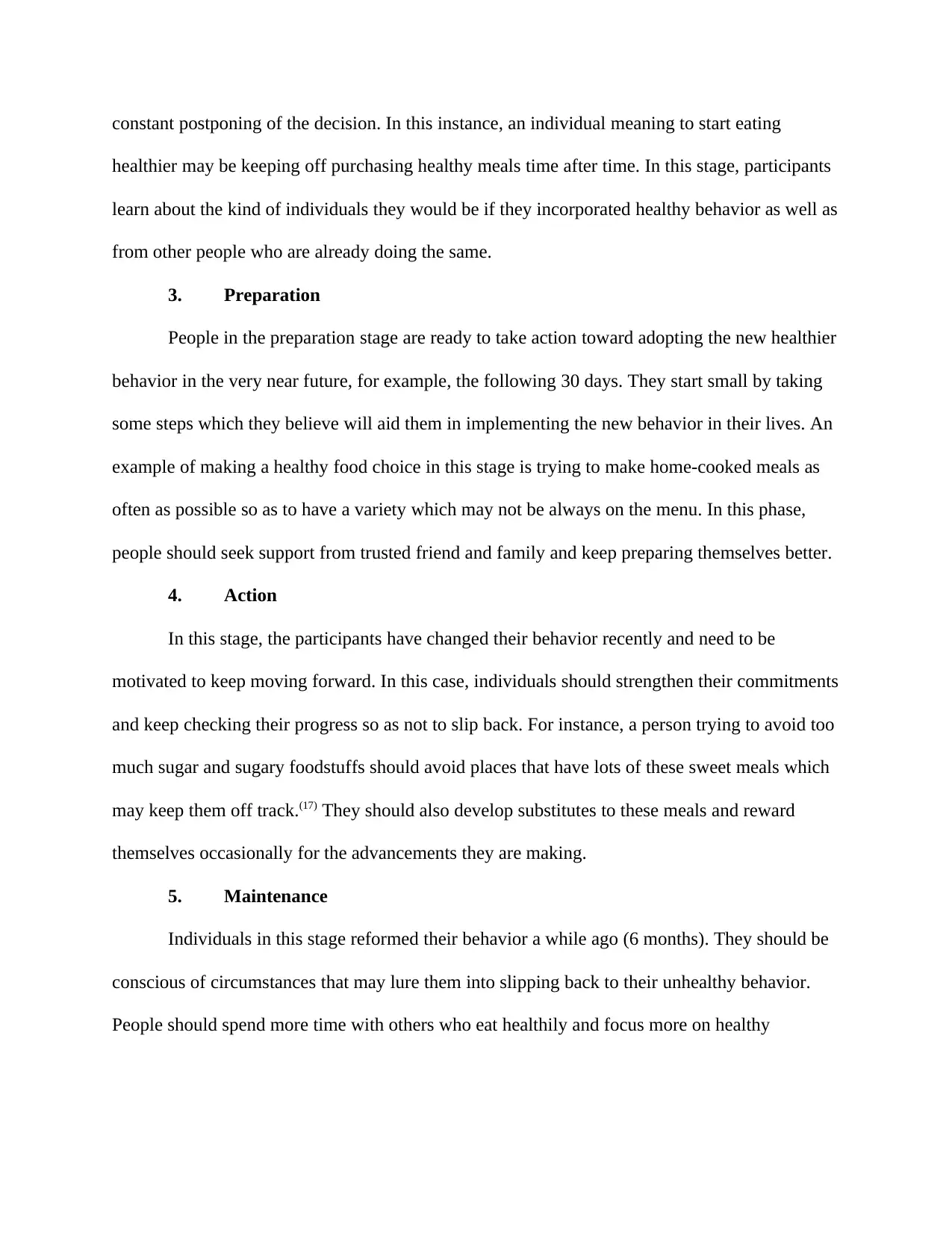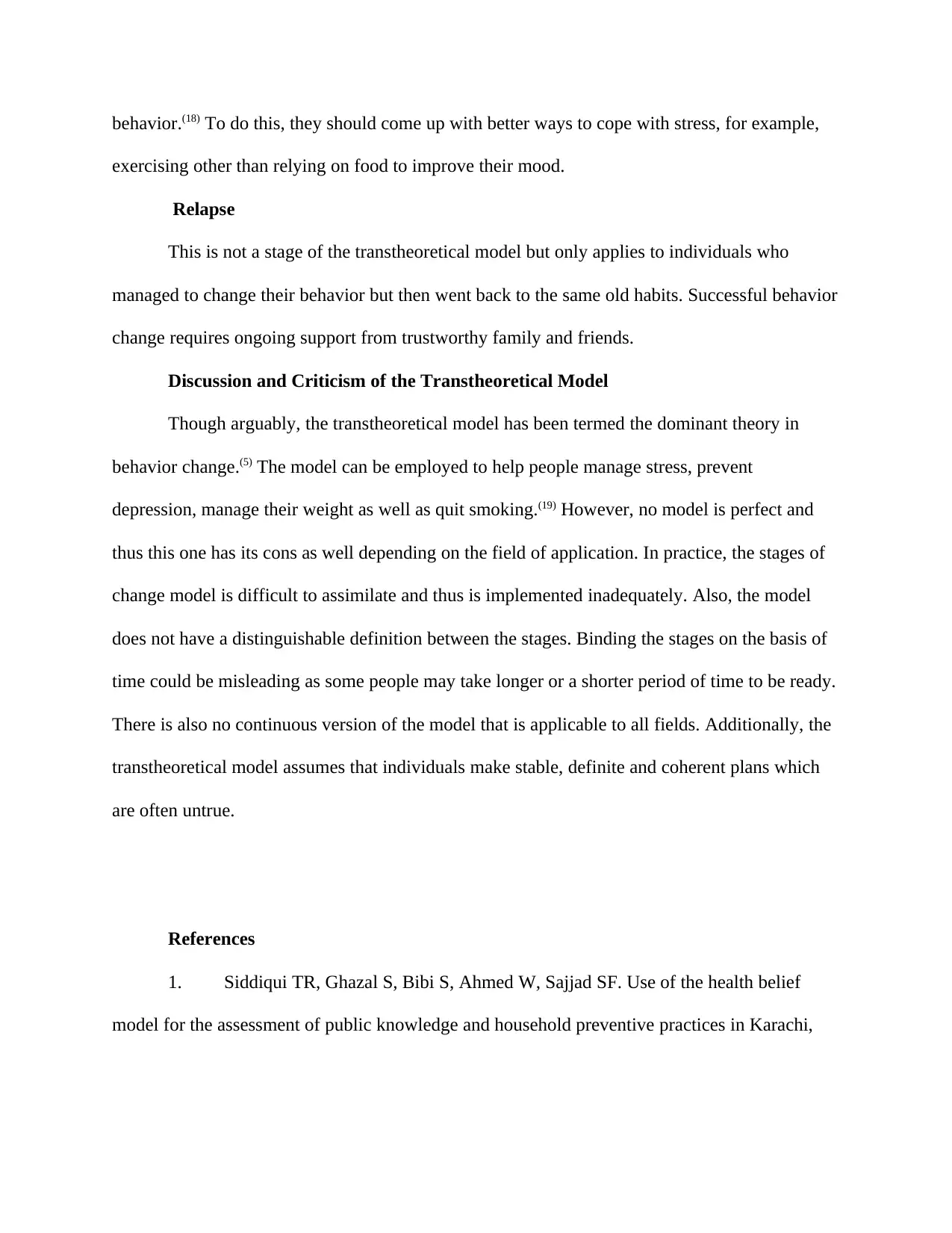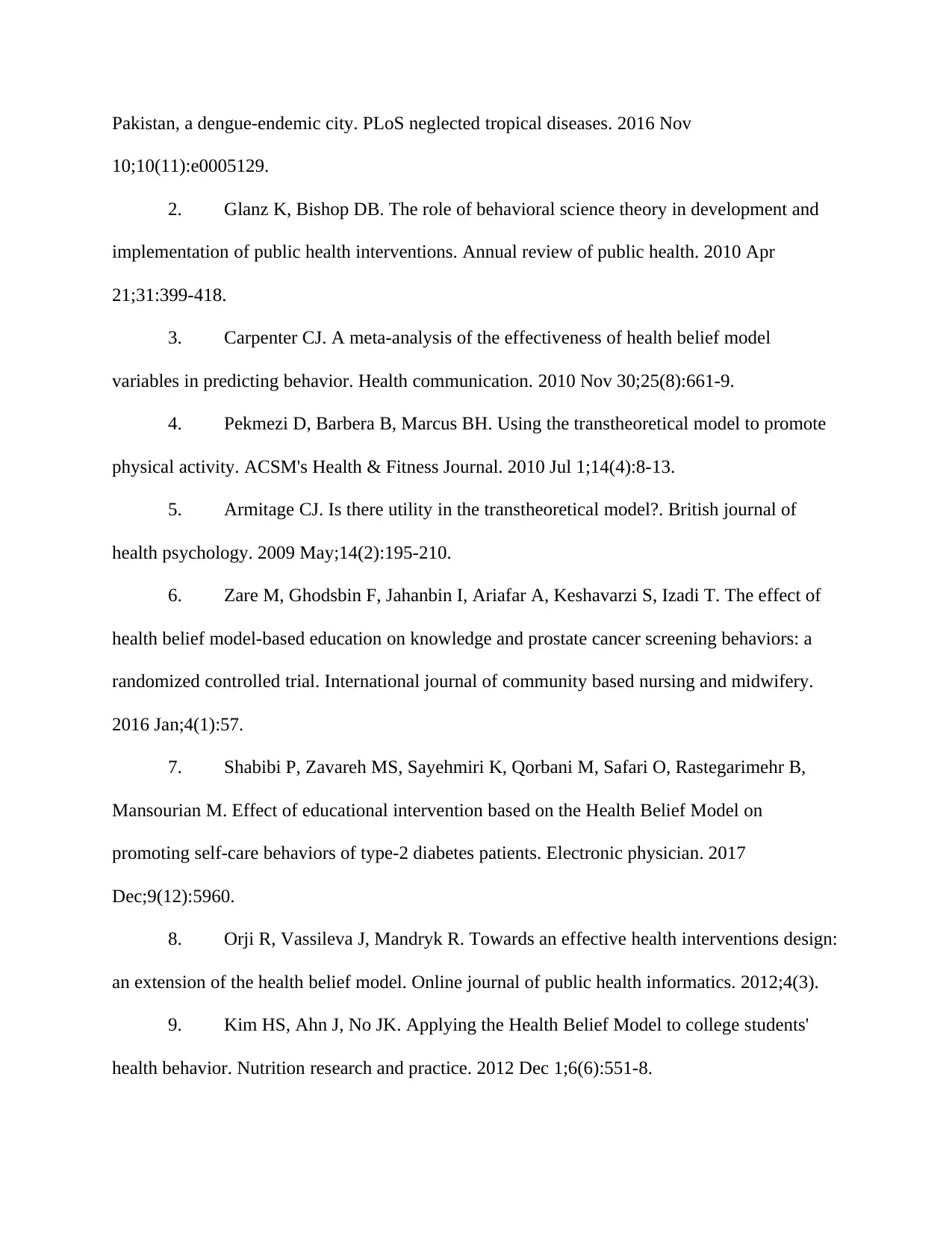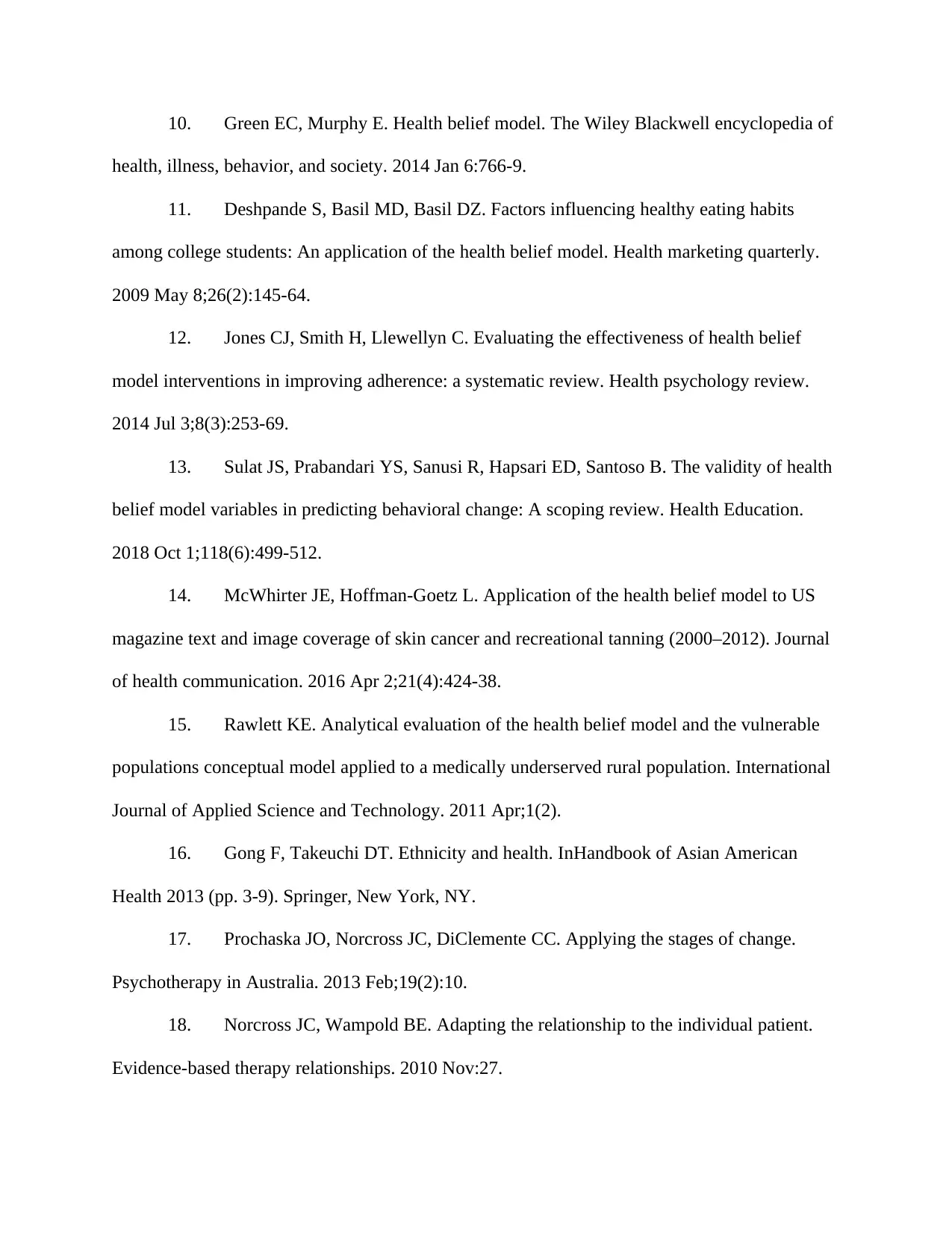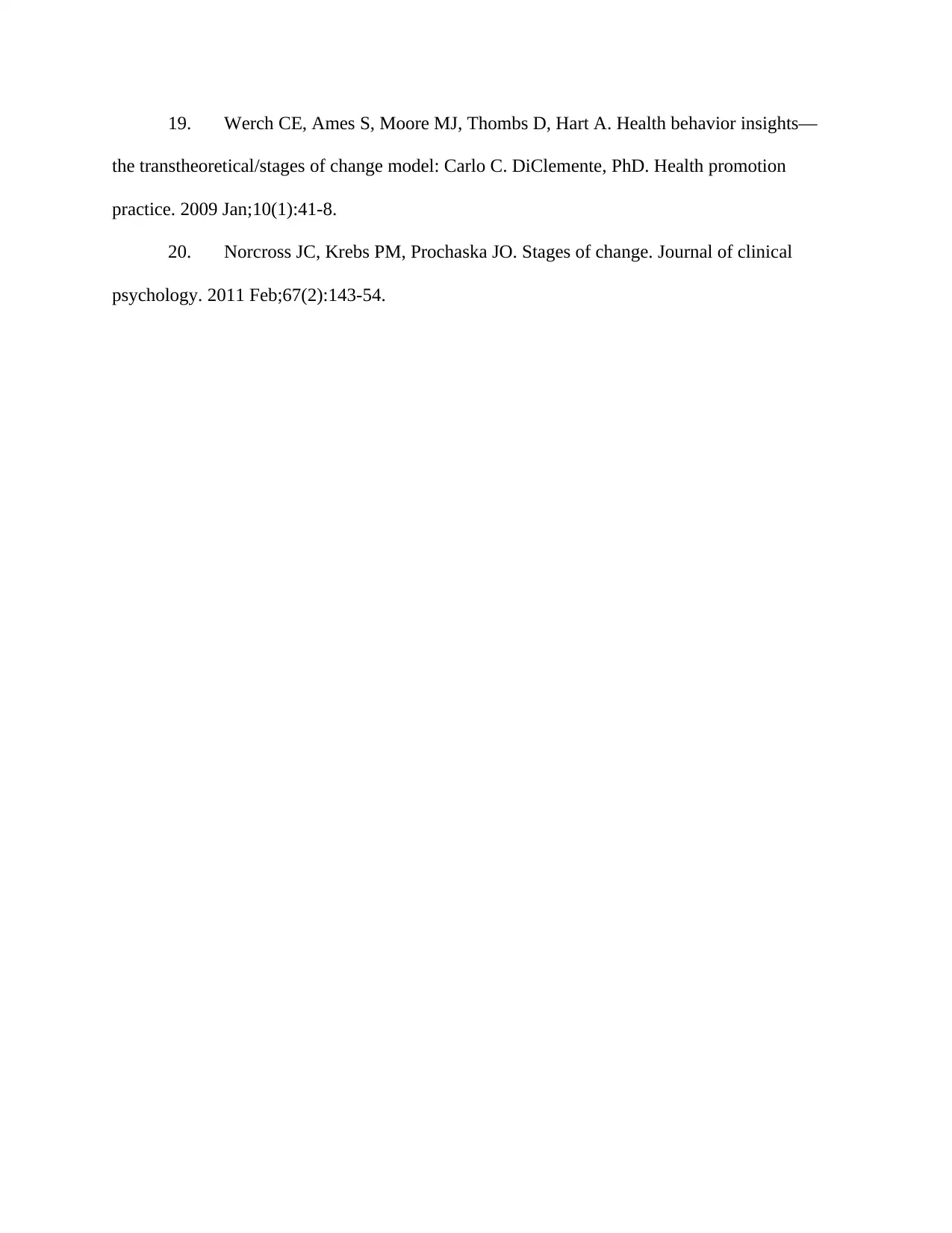The Health Belief Model (HBM) is a psychological model that predicts and explains health-related behaviors. It focuses on people's beliefs and attitudes to explain their engagement or lack of engagement in health-upholding behavior. The model proposes that factors such as perceived susceptibility, perceived severity, perceived benefits, perceived barriers, cues to action, modifying variables, and self-efficacy influence health-related behavior. HBM can be used to create awareness about the relationship between diet and disease and the importance of healthy food choices in preventing certain ailments. However, it does not consider the effects of emotions on health-related behavior and the influence of habitual behaviors. Additionally, drivers of human food choice such as palatability, cost and accessibility, and social setting also play a role in food choices. An alternative model, the Stages of Change Model, can be used to guide individuals in adopting healthy eating habits.
![[object Object]](/_next/static/media/star-bottom.7253800d.svg)
![[object Object]](/_next/static/media/star-bottom.7253800d.svg)

